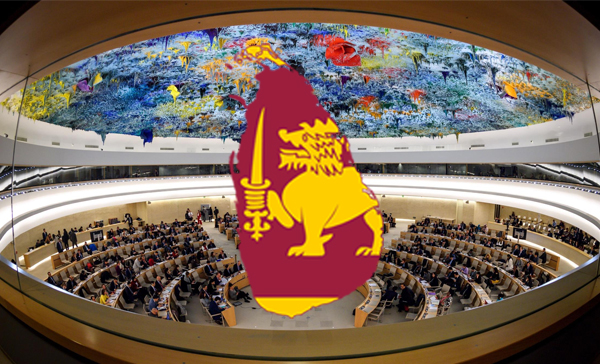Sri Lanka has opposed the allocation of a “staggering” US$ 3.4mn (Rs 1.2bn) by the United Nations to enforce the latest Human Rights Council (UNHRC) resolution on promoting reconciliation, accountability and human rights in Sri Lanka, the entirety of which the Government has categorically rejected.
The sum is part of the UN’s suggested programme budget for 2023 to assist implementation through its relevant arms of the resolutions and decisions adopted by the UNHRC on various countries. It was discussed this week in the UN General Assembly’s Fifth Committee, which is responsible for administrative and budgetary matters.
UNHRC Resolution 51/1 was adopted in October this year, despite a call from Sri Lanka for rejection by vote. The government maintained that it was presented without Sri Lanka’s consent, despite efforts to engage with the main sponsors.
In particular, Sri Lanka rejected a proposal to continue work initiated in the 2021 resolution which created capacity within the Office of the UN High Commissioner for Human Rights (OHCHR) to collect, consolidate, analyse and preserve information to support judicial and other proceedings against the state.
“No sovereign state can accept the superimposition of an external mechanism that runs contrary to its Constitution and which pre-judges the commitment of its domestic legal processes,” Foreign Minister Ali Sabry said, at the time.
The enhanced budgetary allocation floated in the Fifth Committee this week will also support the work of the OHCHR.
“This Committee is being asked to approve resources from the limited UN regular budget to implement a resolution rejected by the country concerned,” Sri Lanka’s representative at the meeting protested.
It “demonstrates the divisive and political nature of the Council and duplicates the work already being carried out by competent domestic procedures,” he said, adding that available resources and contributions of member States “must be used in a more effective, impartial and transparent manner for the common good of the people and not to satisfy the various agendas of a few”.
Among other countries that raised concerns regarding the enhanced budgetary allocations for the implementation of UNHRC resolutions were Iran, Russia, Ethiopia and Uganda.
Sri Lanka also objected to an “exaggerated” estimated resource requirement of US$ 2.13mn (Rs 785mn) for 2024. Echoing the “serious concerns” of other member States over the budgetary implications, the representative pointed out that “the unprecedented and ad hoc expansion of the Council’s mandate and the functions of a technical secretariat was never envisaged when that body was first created”.
At a time when the global economy has been severely impacted due to various crises and member States were adopting austerity measures, “it is our responsibility to be extra vigilant and be disciplined when engaging in making budgetary provision”, he said.
“The budgetary implications of resolution 51/1 are unwarranted and an unhelpful and misdirected drain on the resources of all Member States, including the donors,” he continued. “The several million dollars requested will benefit many lucrative Geneva-based secretariat contractual staff in sharp contrast to the dire financial needs of developing countries.”
In total, the Fifth Committee proposed to provide US$ 21.44mn (Rs 7.9bn) in additional funding in 2023 and 2024 to cover the work of the UNHRC


